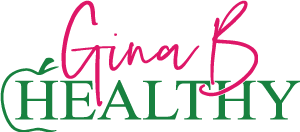The vegetarian diet has been started since 700B.C. many individuals practice the vegan diet for a number of reasons regarding health, environment, and religion. Vegan diets are a little more recent but are getting a valuable amount of press.
What is a vegetarian diet?
A vegetarian diet specifies to that person who forbids to eat meat any meat, poultry, fish, shellfish, or by-products of animal slaughter.
A vegetarian diet comprises certain levels of fruits, vegetables, grains, pulses, nuts, and seeds. Dairy and eggs also depend on the diet you follow.
Types of vegetarian include
Lacto-ovo vegetarians: Vegetarians who avoid all animal flesh, but do consume dairy and egg products.
- Lacto vegetarians: Vegetarians who avoid animal flesh and eggs, but do consume dairy products.
- Ovo vegetarians: Vegetarians who avoid all animal products except eggs.
- Vegans: Vegetarians who avoid all animal and animal-derived products.
Difference between pescatarians and flexitarians?
Those who do not eat meat or poultry but consume fish are known as pescatarians, while part-time vegetarians are regarded as flexitarians.
What is a vegan diet?
A vegan diet is recognized as the strictest form of vegetarianism. Vegan society defines vegan as a way of living that excludes all forms of animal exploitation and cruelty as possible. Hence, the vegan diet falls not in the category to only kick out the animal meats, but also dairy, eggs, and animal-derived ingredients. These also include gelatin, honey, carmine, pepsin, shellac, albumin, whey, ceasing, and some forms of vitamin D3.
However, vegans and vegetarians avoid eating animal products because of reasons to consider animals’ meat unacceptable. For instance, both exclude meat from their diet for health and environmental reasons.
In terms of ethics, vegans are against the killings of animals for foods but take advantage of the mils and also eat eggs. Thus, they seek to keep away from all animal products. The desire to avoid all forms of animal exploitation is why vegans choose to forgo dairy and eggs — products that many vegetarians have no problem-consuming.
Vegetarians and vegans differ in their beliefs regarding the use of animals by humans. This is why some vegetarians may consume animal-derived products, whereas vegans do not.
Nutritional outlook for vegans and vegetarian diet:
Research has shown many vegan and vegetarians consume die to be low in saturated fat and cholesterol. They also prioritize a high amount of minerals, vitamins, fiber, and healthy plant compounds. Their diet is packed up with a high amount oh nutrient-dense foods. They prefer fruits, grains, seeds whole grains, nuts, and soy products. While on the other hand, poorly planned vegetarians and a vegan diets have the consequential loss in iron, calcium, zinc, and vitamin D. Both diet should include a limited amount of vitamin -12 and a long chain of omega-3 fatty acids.
Pros and cons of a vegan diet
Pros:
- Evidence-based health benefits
- Encourages mindful eating
- Wider variety of foods
- May lead to weight loss
- Reduced food costs
- Healthier for the environment
- No animal impact
- May help lower cholesterol
- May help lower blood pressure
- Increase anti-oxidant intake
- May promote greater self-control
Cons:
- Limited food choices
- Possible nutrient deficiencies
- Requires diligence
- Difficulty dining out
- Unrealistic expectations
- Social isolation
- A radical change
- Potential interference with existing medical conditions
- Loss of essential vitamins and minerals
- Unrealistic expectation
Science based-health benefits of eating vegan
-
A vegan diet is richer in certain nutrients:
In some cases, you inevitably rely on other foods like whole foods, grains, vegetables, peas, nuts. So, these diets contribute to a large proportion of the vegan diet than a typical western diet that contributes to a large intake of certain beneficial nutrients.
-
Best trimmer to lose weight:
A large no of folks are turning to a plant-based diet in the hope of shedding excess weight. What could be the outlook which attracts others? Vegans tend to have a more skinny body and lower body mass as compared to non-vegans which are bulkier in mass.
-
Lowers blood sugar level and ameliorate kidney function:
adopting the vegan lifestyle prevents you from type2 diabetes and declines the kidney functioning. Studies even report that vegan diets lower blood sugar levels in diabetics more than the diets from the American Diabetes Association (ADA), American Heart Association (AHA), and National Cholesterol Education Program (NCEP) (10Trusted Source, 12Trusted Source, 13Trusted Source, 22Trusted Source).
In one study, 43% of participants following a vegan diet were able to reduce their dosage of blood-sugar-lowering medication, compared to only 26% in the group that followed an ADA-recommended diet.
-
Vegan diet protects against certain anti-cancers:
According to the WORLD HEALTH ORGANISATION, about one-third of the people can be prevented from cancer risk due to their diet. Eating legumes reduces cholesterol risk by 8-13%. Intake of fresh fruits and vegetables per day also reduces the cancer risk by up to 15%. In the case of females, it also offers protection against breast cancer.
That may be because vegan diets are devoid of smoked or processed meats and meats cooked at high temperatures, which are thought to promote certain types of cancers (36Trusted Source, 37Trusted Source, 38Trusted Source, 39Trusted Source). Vegans also avoid dairy products, which some studies show may slightly increase the risk of prostate cancer

